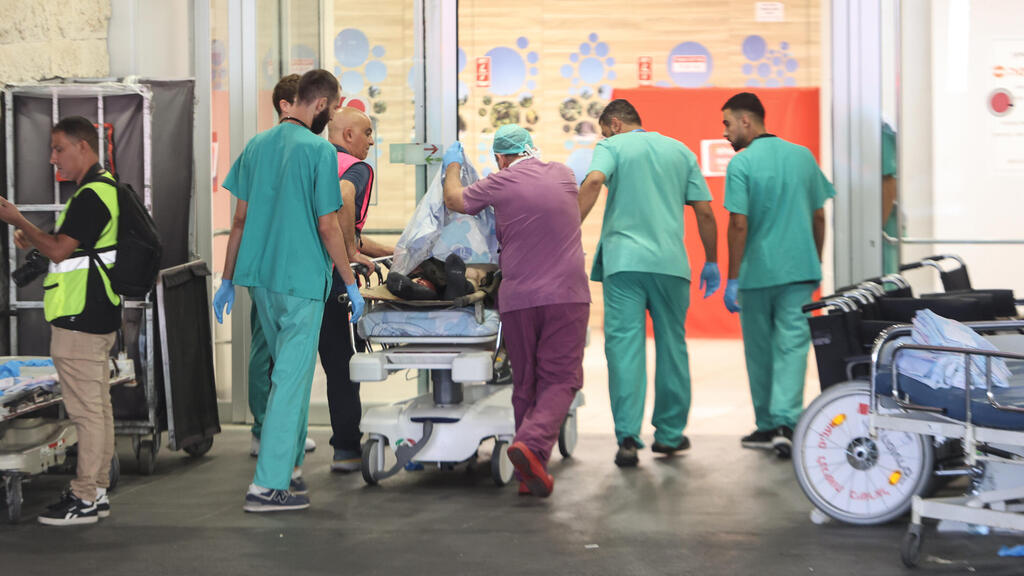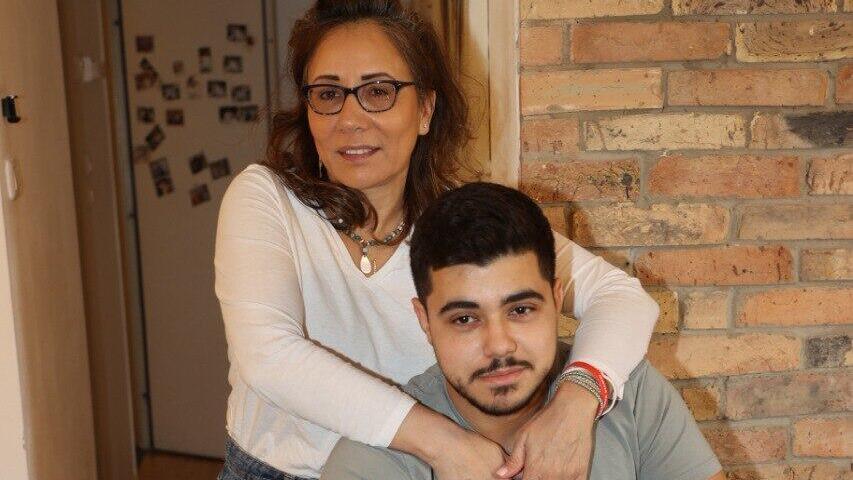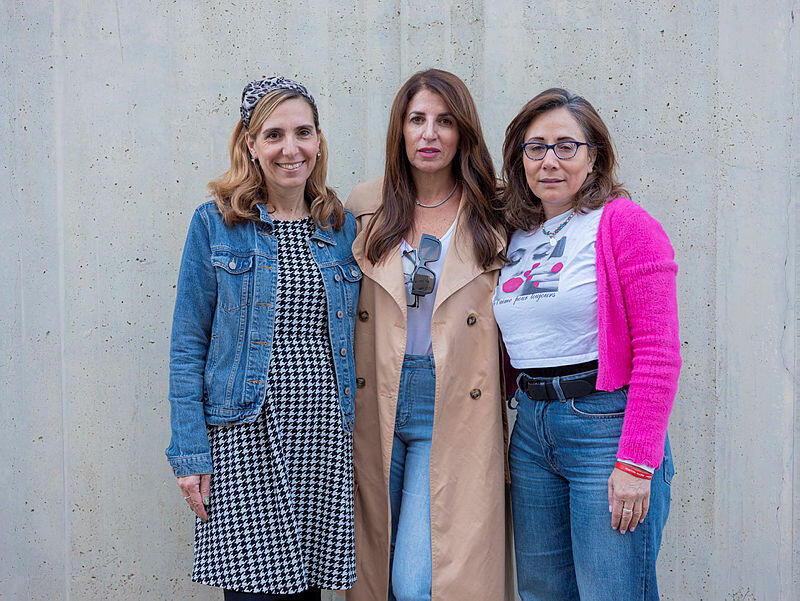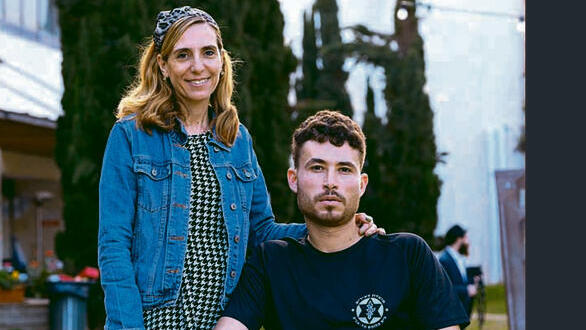Getting your Trinity Audio player ready...
In the first weeks after the October 7 massacre, Israelis flocked to support the wounded, offering practical things, donating equipment, showering them and their families with love. But after more than four months of war, the flood of support has turned into a trickle and some families of soldiers wounded in battle, feel abandoned.
More stories:
According to IDF figures, no less than 5,500 soldiers were wounded, most serving in the military reserves, are under the age of 30. Some are still hospitalized while others have been undergoing rehabilitation. Some are already trying to resume their lives.
Three mothers of soldiers wounded in the war find it difficult to accept that Israelis have moved on, while they were still trying to pick up the pieces of their lives that have changed so radically.
Yifat Salah's son Uri Maimon, who is 20, was wounded in a friendly fire incident in the north when a defense team mistook him and two others with him, for terrorists and opened fire. "The car was riddled with bullets. They did not have time to shout out that they were soldiers," she says.
After initial treatment at the hospital in Nahariyah, Uri was transferred to the Sheba Medical Center. "It was complete chaos," Yifat Says. "The first weeks there were like a battlefield. To this day we don't have clear answers about what his body had been through. We just wanted him to breathe and for the suffering to stop. He was in great pain."
Salah works in a retirement home and says her life came to an abrupt standstill. "I left the hospital after two months and saw people sitting in coffee shops. I understood the country had moved on while I had been in survival mode and locked inside my world."
She says the following weeks and until recently, she had struggled. "I could not communicate and asked people not to speak to me because I had no energy to respond," she says. "I went back to work two weeks after Uri's injury. I dressed up and put a smile on my face. At first, there was much consideration at my workplace. We were embraced, and paid for the time away, but that ended a month in, as did the empathy. Today I have a son who is wounded and in pain. He is awake at night and sleeps through the day.
Salah says she feels the families of the wounded have been pushed to the side. Things have begun to settle, and their struggles are beginning.
Although things at home are tough, I have no protection at work and can be fired at any moment. We are not the same people at home, not the same family. Our lives have been turned upside down."
Oshrit Levi's 22-year-old son Ofek was wounded in December when he took a bullet to his hand from a terrorist in Jabalia in Gaza. "He was also wounded in his ear and had shrapnel in his body, legs and back," she says. "He was in a five-story building when anti-tank missiles were fired at them and the terrorist shot at his hand."
She is now, two months after the incident, and is finally trying to understand how this will affect her life. "I haven't had the time to deal with myself and am still having to deal with the bureaucracy and with scheduling the medical treatments," she says although she insists that she has no complaints. "I feel like the medical system is working but I do find it hard to see that everyone has gone on with their lives. I think only someone who has had a child wounded or killed, truly understands this war, while all the rest seem not to be involved. It was hard for me as a teacher to go back into the classroom and talk to my pupils. The loud noise was difficult."
Levy says Israelis are no longer visiting the wounded. "I don't think people should not go out and have a good time but if everyone took one day a month to visit the rehabilitation wards, that would be great," she says. "You leave those places with such strength. Today there are much fewer visitors. It is like the soldiers have been forgotten. Last Thursday the rehabilitation ward and the Sheba Medical Center were deserted and that was painful to see. I don't want the soldiers to be invisible to Israelis, because they are left with their wounds," she says.
"I call on all Israelis to make time to visit the wounded. We've lost the compassion for each other. I see it on the road and in the supermarket. I wish we were more united."
Ronit Shilony, on the other hand, has only good things to say. Her son Shahar, 24, lost his leg when his tank which provided security to a column evacuating wounded soldiers, came under attack. "Another soldier who was with him was killed and he was saved by a paramedic who stayed with him and made sure he was awake," she says.
"I couldn't believe it when IDF officers came to take me to the hospital. My uncle who had the same position as Shahar in the 1973 Yom Kippur war, was killed. We did not know what we were going to see."
Shahar was moved into the rehab unit after two weeks. "He's been there for two months and has two more to go. Me? I am on an emotional rollercoaster. On the one hand, I am excited to see his progress," she says. "He proposed to his girlfriend and we are busy planning their wedding. People will come from all over the world for that. But on the other hand, this is not an easy situation and something he will have to deal with his entire life. My son is disabled, but we feel embraced. The Soroka Hospital has been great. Not an hour went by without someone popping in to ask if we needed something. There is someone from the Defense Ministry who is advising us, so I feel we are being helped," she says.
Still, Shilony has to hold back her tears when she talks about the future. "Shahar will be left with this loss but at least you feel that this was not in vain and that you are part of something greater," she says. "At work, I was told to take more time off if I needed to and I don't feel like I am being denied anything that I need. When I hear the choppers coming in to land at the hospital I think about the next family that is about to be shattered, but I know that the purpose is that no one will ever be abducted from their bed or from a party, again."
She has another son who is also fighting in Gaza. "I begged him to stay at least until Shahar was done with his operations. He was itching to get back to the war and get the job done. He agreed to stay a bit longer and now makes a point of calling me. He knows how hard it is.







